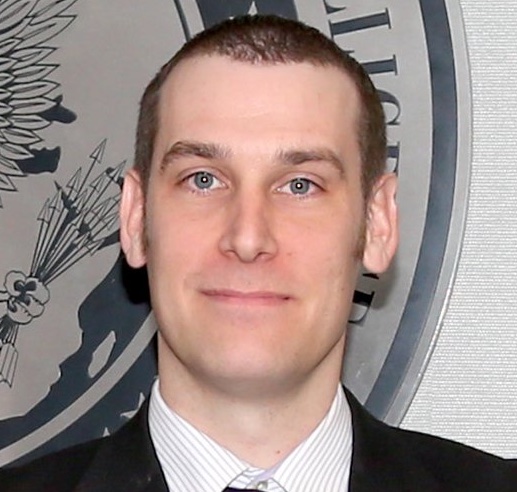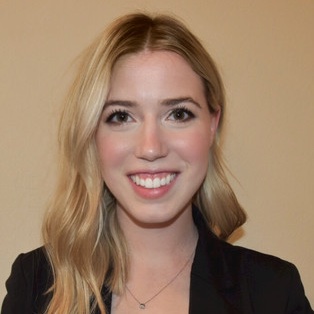Keynote Sessions
Eric Tulsky, Assistant General Manager, Carolina Hurricanes
No Stone Unturned: Leveraging Public Domain Analysis
Abstract: It is widely recognized that teams have clear incentives to assemble a research group that can develop new insights into the game, unique assessments that can be kept proprietary and used to try to gain an advantage over other teams. What gets less attention is that teams should also be angling to leverage the horsepower of analysts working in the public domain. In this talk, we will discuss a variety of ways that teams can get value from public domain work beyond mere passive monitoring of advances in the literature.
 Eric Tulsky is in his eighth season with the Hurricanes and his second as assistant general manager. As assistant general manager, Tulsky assists in all hockey-related matters while also overseeing the team's hockey information department. Tulsky previously served as vice president of hockey management and strategy. Tulsky has been publishing his advanced hockey statistical analysis since 2011, when he began writing for BroadstreetHockey.com. He also contributed to NHLNumbers.com prior to launching his own website through SBNation, [Outnumbered]. Tulsky has been a featured panelist for MIT's annual Sports Analytics Conference and his hockey analysis work has also been published in The Washington Post and fivethirtyeight.com.
Eric Tulsky is in his eighth season with the Hurricanes and his second as assistant general manager. As assistant general manager, Tulsky assists in all hockey-related matters while also overseeing the team's hockey information department. Tulsky previously served as vice president of hockey management and strategy. Tulsky has been publishing his advanced hockey statistical analysis since 2011, when he began writing for BroadstreetHockey.com. He also contributed to NHLNumbers.com prior to launching his own website through SBNation, [Outnumbered]. Tulsky has been a featured panelist for MIT's annual Sports Analytics Conference and his hockey analysis work has also been published in The Washington Post and fivethirtyeight.com.
A Philadelphia, Pa., native, Tulsky holds a B.A. in chemistry and physics from Harvard University and a Ph.D. in chemistry from UC-Berkeley. He also conducted a two-year, post-doctoral study at the Naval Research Lab in Washington, D.C., and worked in nanotechnology for 12 years. Tulsky's research has helped enable unique nanotechnology solutions to problems in DNA sequencing, solar energy, displays and energy storage, and he holds 19 U.S. patents.
Eric and his wife, Karen, live in Chapel Hill with their son, Seth.
Justin Jacobs, Principal Research Statistician, Sandia National Laboratories
A Square-Integrable Methodology into Play Registration for NBA Tracking Data
Abstract: As tracking data has been introduced to teams over the previous decade, a grand challenge has been how to perform classification of basketball actions. Myriads of methodologies such as curve classification, latent feature clustering using machine learning algorithms such as neural networks, and even long-short-term-memory classification models have been used. While each new methodology has their own merits, ultimately they require square integrability of the underlying geodesics of which curves are measured. In this session, we discuss some ways to transform tracking into a square-integrable basis first from a Karhunen-Loeve representation such as the Fourier Series decomposing a radio signal and into a wavelet-based methodology that incorporates position and heteroscedasiticy across various play-types. This research was initially performed for an Eastern Conference team in 2014, published through CMI in 2015 and presented at Math Fest in June 2015.
 Justin Jacobs is a Ph.D. Principal Research Statistician for Sandia National Laboratories and a Remote Researcher for the National Basketball Association. He graduated from the University of Maryland, Baltimore County with a Ph.D. in Statistics prior to working as faculty at Coppin State University and within the Department of Defense. During his tenure at the Department of Defense and National Laboratories, Justin worked on various projects fusing statistical analysis, data science, and intel analysis in helping solve some of the nation’s most challenging problems; ultimately earning his Agency’s first ever Presidential Early Career Award in Science and Engineering (PECASE), a CAREER Award, and an ODNI Medallion Award. Aside from his work in National Security, Justin has also served either as a consultant, a remote researcher, and a full time researcher for multiple NBA teams since 2013; most recently the Houston Rockets from 2018 through 2020.
Justin Jacobs is a Ph.D. Principal Research Statistician for Sandia National Laboratories and a Remote Researcher for the National Basketball Association. He graduated from the University of Maryland, Baltimore County with a Ph.D. in Statistics prior to working as faculty at Coppin State University and within the Department of Defense. During his tenure at the Department of Defense and National Laboratories, Justin worked on various projects fusing statistical analysis, data science, and intel analysis in helping solve some of the nation’s most challenging problems; ultimately earning his Agency’s first ever Presidential Early Career Award in Science and Engineering (PECASE), a CAREER Award, and an ODNI Medallion Award. Aside from his work in National Security, Justin has also served either as a consultant, a remote researcher, and a full time researcher for multiple NBA teams since 2013; most recently the Houston Rockets from 2018 through 2020.
Sarah Bailey, Manager Analytics and Data, Los Angeles Rams
Sports Science in NFL: An Overview of How Analytics and Performance Can Work Together
Abstract: Often unglorified and less publicly spoken about, sports science offers a unique entry to sport that marries the knowledge from analysts, athletic trainers, and coaches to optimize player performance and health. In a league where incremental advances matter, monitoring athletes physical and internal health can elevate a team. As an analyst in this field understanding the language, the goal, and effectively communicating your work comes with its own struggle and reward. This talk will cover a broad overview of sports science in the NFL while giving a glimpse into the type of work done, struggles that arise, as well as how the future of sports science looks.
 Sarah Bailey is currently Manager of Analytics and Data for the Los Angeles Rams. She studied at both Jacksonville University in Jacksonville, Florida and at University of the Pacific where she pursued a mathematics degree and began to explore ways to combine her love of sports and math including publishing a paper titled "A Comparison of Academic and Athletic Performance in the NCAA". After holding an internship with the (then) San Diego Chargers (NFL), Bailey obtained a Master's in Statistics at Simon Fraser University. During her time there, she also participated in the NBA hackathon, was part of the winning team in the Hockeygraphs Data Sprint Hackathon, and worked with advisor Tim Swartz on baseball research for her M.Sc. project.
Sarah Bailey is currently Manager of Analytics and Data for the Los Angeles Rams. She studied at both Jacksonville University in Jacksonville, Florida and at University of the Pacific where she pursued a mathematics degree and began to explore ways to combine her love of sports and math including publishing a paper titled "A Comparison of Academic and Athletic Performance in the NCAA". After holding an internship with the (then) San Diego Chargers (NFL), Bailey obtained a Master's in Statistics at Simon Fraser University. During her time there, she also participated in the NBA hackathon, was part of the winning team in the Hockeygraphs Data Sprint Hackathon, and worked with advisor Tim Swartz on baseball research for her M.Sc. project.
Post-graduation, Bailey joined the Rams initially as a Sports Performance Analyst where she worked with athletic trainers and strength staff to analyze workload and optimize performance. Her role has evolved in include working with all data and departments on the football side, including but not limited to analyzing data from the personnel and medical staff and assisting scouting (both college and pro) departments to identify key traits in players, project players into the NFL, and evaluate scouting systems to see which measured variables are most important. On the performance side, her wook looks at various measurements to try to optimize players' gameday performance and minimize the probability of preventable injury.
Bailey has become a consistent presence on the speaking circuit for both women working in sports and data professionals driving sports forward.
Panel on Career in Sports Analytics,
Title: Panel Discussion on Careers in Sports Analytics
Abstract: For many, the idea of working in sports analytics is a dream occupation if not a stated goal, but what does that mean and what steps can one take to get there? This panel will explore the many routes to being part of an analytics-focused team in sport; and various applications of analytics; as well as the realities --- both good and bad --- about working in this space.
 Jessica Hensley, Jessica Hensley, Data Analyst, United States Olympic & Paralympic Committee. For the last two years Jessica has worked as a Data Analyst for the US Olympic & Paralympic Committee. She is based in Colorado Springs, CO, but is currently supporting US Olympic efforts in Tokyo! Jessica graduated from Emory and Henry College with a degree in Mathematics followed by a Master’s degree in Statistical Data Science from Florida State University. Before graduating, Jessica interned at ESPN for the Stats & Information group where she collected and analyzed data to support insightful storytelling on television as well as espn.com.
Jessica Hensley, Jessica Hensley, Data Analyst, United States Olympic & Paralympic Committee. For the last two years Jessica has worked as a Data Analyst for the US Olympic & Paralympic Committee. She is based in Colorado Springs, CO, but is currently supporting US Olympic efforts in Tokyo! Jessica graduated from Emory and Henry College with a degree in Mathematics followed by a Master’s degree in Statistical Data Science from Florida State University. Before graduating, Jessica interned at ESPN for the Stats & Information group where she collected and analyzed data to support insightful storytelling on television as well as espn.com.
 Kelsey Roberts, Database/Basketball Analyst, New York Knicks. Kelsey is in her first season with the New York Knicks. Prior to her role with the Knicks, she was a category analyst for Kao and also did analytics internships with the Indiana Pacers and Miami HEAT. She has a bachelors in International Business from Xavier University and a masters in Statistics from the University of Arkansas.
Kelsey Roberts, Database/Basketball Analyst, New York Knicks. Kelsey is in her first season with the New York Knicks. Prior to her role with the Knicks, she was a category analyst for Kao and also did analytics internships with the Indiana Pacers and Miami HEAT. She has a bachelors in International Business from Xavier University and a masters in Statistics from the University of Arkansas.
 Sara Ziegler, Sports Editor, FiveThirtyEight. Sara Ziegler is the sports editor at FiveThirtyEight and the host of the Hot Takedown podcast. She is a native of South Dakota and an alumna of Iowa State University.
Sara Ziegler, Sports Editor, FiveThirtyEight. Sara Ziegler is the sports editor at FiveThirtyEight and the host of the Hot Takedown podcast. She is a native of South Dakota and an alumna of Iowa State University.
 The panel will be moderated by Alison Lukan. Alison Lukan is Seattle Kraken Contributor and TV Analyst for Root Sports. She specializes in data-driven storytelling in the world of hockey. Ms. Lukan has covered the Columbus Blue Jackets for ten years and also explores league-wide issues from an analytics perspective. She has written for FOX Sports, Yahoo Sports, The Athletic and team websites for both Columbus and Seattle among other outlets. She believes hockey should be studied as a science and an art and seeks to meld the two through her writing. Prior to covering hockey exclusively, Ms. Lukan worked for 20 years as a strategic planning consultant advising corporations across a variety of industries in the areas of strategic management, effective communications, organizational design and knowledge management. Ms. Lukan has a bachelor’s degree in Leadership Studies from the University of Richmond.
The panel will be moderated by Alison Lukan. Alison Lukan is Seattle Kraken Contributor and TV Analyst for Root Sports. She specializes in data-driven storytelling in the world of hockey. Ms. Lukan has covered the Columbus Blue Jackets for ten years and also explores league-wide issues from an analytics perspective. She has written for FOX Sports, Yahoo Sports, The Athletic and team websites for both Columbus and Seattle among other outlets. She believes hockey should be studied as a science and an art and seeks to meld the two through her writing. Prior to covering hockey exclusively, Ms. Lukan worked for 20 years as a strategic planning consultant advising corporations across a variety of industries in the areas of strategic management, effective communications, organizational design and knowledge management. Ms. Lukan has a bachelor’s degree in Leadership Studies from the University of Richmond.